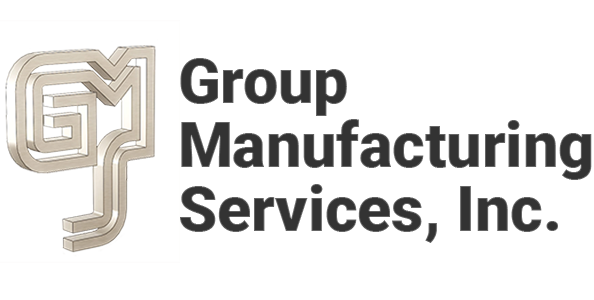
One moment please...

One moment please...
It’s not merely a methodology; it’s a mindset that prioritizes continuous improvement.
By minimizing waste, refining workflows, and emphasizing quality, lean manufacturing at GMS ensures that every sheet metal component reflects efficiency, precision, and client satisfaction.
As we explore the core principles of lean manufacturing, the seamless integration of technique and artistry at GMS comes to the forefront.

Lean manufacturing operates on foundational principles that guide its application across various industries.
At its core, it involves principles such as waste reduction, continuous improvement, respect for people, and the pursuit of perfection.
In the context of precision sheet metal fabrication, these principles take on a profound significance.
Waste reduction aligns with the meticulous use of materials, minimizing any inefficiencies in the production process.
Continuous improvement ensures that each fabricated component is a step closer to perfection, meeting the high standards set by GMS. Moreover, the respect for people principle emphasizes the skilled craftsmanship involved in sheet metal fabrication, acknowledging the human touch that elevates the final product.
As we delve into the application of lean manufacturing at GMS, these principles become the guiding lights steering the company toward precision and innovation.
These principles form a cohesive framework that fosters efficiency and excellence.
Lean manufacturing techniques, when applied to precision sheet metal fabrication, result in heightened efficiency.
The emphasis on streamlined processes ensures that every step in fabrication adds value, eliminating unnecessary delays and redundancies.
This efficiency not only accelerates production but also minimizes waste, optimizing the utilization of resources.
Precision is paramount in sheet metal fabrication, and lean manufacturing aligns seamlessly with this requirement.
By focusing on continuous improvement, lean practices at GMS contribute to the enhancement of product quality.
Each fabricated component undergoes a meticulous process that prioritizes accuracy, meeting and exceeding the stringent standards expected in precision manufacturing.
Flexibility is a key advantage in precision sheet metal fabrication, especially when catering to diverse customer demands.
Lean manufacturing principles foster an environment of adaptability. GMS, through the application of lean methodologies, can efficiently adjust production processes to accommodate varying specifications and respond promptly to evolving customer needs.
This not only ensures customer satisfaction but positions GMS as a reliable and agile partner in precision sheet metal fabrication.
“In manufacturing, the more you automate, the lower your cost, and the better your quality.” – Eliyahu Goldratt
Eliyahu Goldratt (March 31, 1947 – June 11, 2011) was an Israeli business management guru and physicist. He was best known for his work on business management, especially his Theory of Constraints (TOC), which is a management philosophy that aims to improve organizations by systematically identifying and removing constraints that hinder their progress.
Goldratt’s ideas and theories have been influential in the field of business management and operations, emphasizing the importance of efficiency, continuous improvement, and addressing bottlenecks in processes.

GMS employs state-of-the-art CNC machines and precision tools that play a pivotal role in streamlining sheet metal fabrication processes.
These advanced technologies enhance accuracy, reduce production times, and contribute to the overall efficiency of the manufacturing workflow.
Automation is a key tool in lean manufacturing, and GMS leverages automated processes wherever applicable in sheet metal fabrication.
Automated cutting, forming, and assembly procedures not only minimize manual labor but also contribute to precision and consistency in the production of sheet metal components.
GMS utilizes digital prototyping and simulation tools to refine and optimize designs before physical production begins.
This not only accelerates the product development cycle but also ensures that the fabricated components meet design specifications with minimal iterations, reducing time and resource consumption.
One of the foundational principles of lean manufacturing is collaborative design.
GMS adopts this approach in sheet metal fabrication, involving clients in the design phase to gain a deep understanding of the intended application.
This collaboration ensures that the fabricated components align precisely with the functional and aesthetic requirements.
Value stream mapping is employed to identify and eliminate inefficiencies in the fabrication process.
GMS meticulously analyzes the entire value stream, from initial design to final delivery, to pinpoint areas for improvement.
This systematic approach ensures that every step adds value and contributes to the overall efficiency of the sheet metal fabrication process.
Continuous improvement is a core tenet of lean manufacturing.
GMS encourages a culture of continuous improvement among its workforce, empowering employees to suggest and implement enhancements in processes.
This iterative approach ensures that the sheet metal fabrication processes evolve to be more efficient and responsive over time.
One of the challenges in sheet metal fabrication is managing lead times, especially in complex projects.
GMS addresses this by employing efficient scheduling practices and optimizing production workflows to reduce lead times without compromising on quality.
Precision sheet metal fabrication often involves intricate designs and complex geometries.
GMS tackles this challenge by combining skilled craftsmanship with advanced technologies.
Rigorous quality control measures are in place to ensure that even the most complex sheet metal components meet the highest standards of quality.
Material variability can pose challenges in sheet metal fabrication.
GMS addresses this by working closely with trusted suppliers, employing strict material inspection protocols, and leveraging digital tools to adapt fabrication processes based on material variations.
This proactive approach ensures consistency in the quality of fabricated components.
In this integrated approach to tools, techniques, and processes, GMS exemplifies how lean manufacturing principles are not just theoretical concepts but practical strategies applied to optimize every facet of precision sheet metal fabrication.
These practices contribute to GMS’s standing as a leader in delivering high-quality, precisely fabricated sheet metal components.
As we conclude this exploration of lean manufacturing principles in precision sheet metal fabrication, it’s evident that Group Manufacturing Services (GMS) stands at the forefront of industry innovation.
The seamless integration of advanced tools and techniques, streamlined processes, and proactive solutions to challenges underscores GMS’s commitment to lean excellence.
Why Choose GMS for Your Sheet Metal Fabrication Needs?
Whether you are in aerospace, healthcare, telecommunications, or any other industry, GMS is ready to elevate your sheet metal fabrication experience.
Choose GMS for precision, efficiency, and a collaborative approach that turns your concepts into reality.
Contact us today to embark on a lean manufacturing journey that sets new standards in sheet metal fabrication.